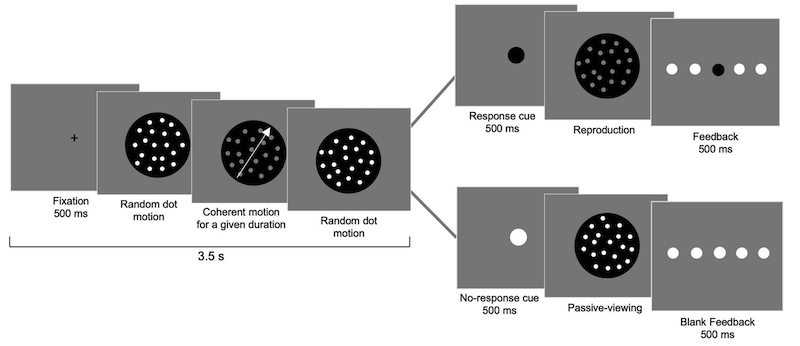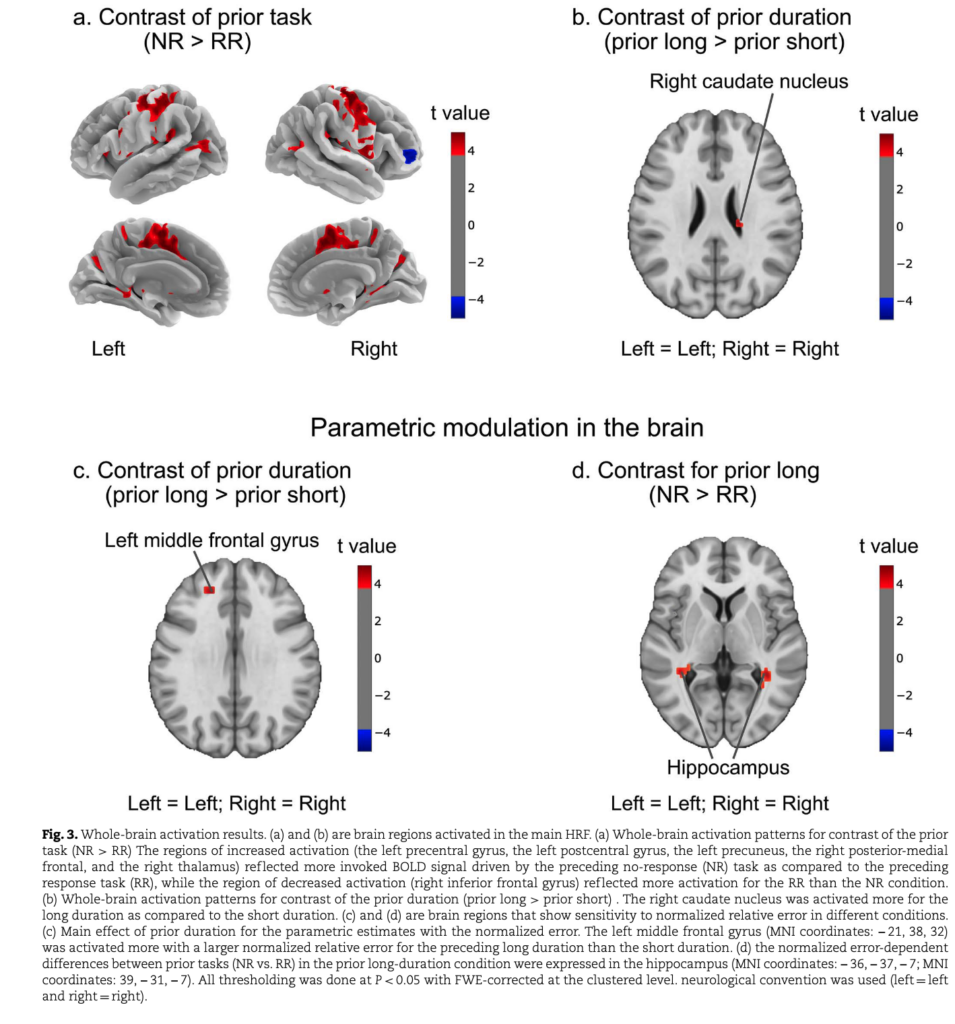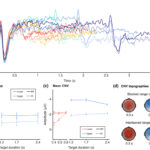Our perception and decision-making are susceptible to prior context. In our recent study, published in Cerebral Cortex, Ms. Cheng and colleagues employed functional magnetic resonance imaging to investigate neural mechanisms underlying temporal sequential dependence and the role of action in time judgments across trials. We showed that action plays a key role in shaping our perception of time.
In the study, participants had to perform a timing task where they had to remember the duration of green coherent motion and were cued to either actively reproduce its duration or simply view it passively.

We found that sequential biases were only evident when the preceding task involved active duration reproduction. Merely encoding a prior duration without reproduction failed to induce such biases. Moreover, we observed activation in networks associated with timing, such as striato-thalamo-cortical circuits, and performance monitoring networks, particularly when a ‘response’ trial was anticipated.
Importantly, when reproductions were lined up, one after another, they amplified the sequential bias. Interestingly, this sequential bias negatively correlates with the BOLD signal in the hippocampus. But, if there was no preceding action, we observed increased hippocampal activity. This enhanced activity actively preserved the encoded duration, reducing potential sequential biases.

References:
Cheng, S., Chen, S., Glasauer, S., Keeser, D., & Shi, Z. (2023). Neural mechanisms of sequential dependence in time perception: the impact of prior task and memory processing. Cerebral Cortex . https://doi.org/10.1093/cercor/bhad453




